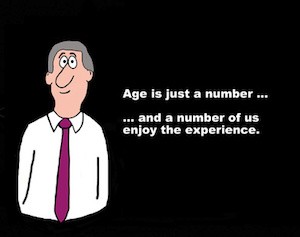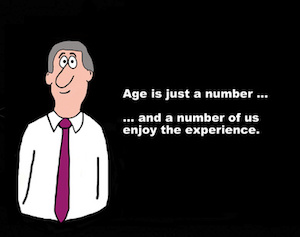 We all know that “No offence, but…” generally precedes an incredibly offensive or judgemental statement. Similarly, there are a number of “compliments” people pay older people which are backhanded compliments at best. Ageism occurs when people aren’t age-blind.
We all know that “No offence, but…” generally precedes an incredibly offensive or judgemental statement. Similarly, there are a number of “compliments” people pay older people which are backhanded compliments at best. Ageism occurs when people aren’t age-blind.
Imagine if the following were in reference to skin colour, religion or sexual orientation, rather than age:
When a waiter asks, “What can I get for you today, young man/lady?”
Customers are customers, regardless of age. Would it ever be turned around on a 20-something customer where they are called “Nana” or “Grandad?” Probably not!
“My grandparents are so adorable.”
By all means, adore your family members, but using the adjective “adorable” for adults is rather clumsy and borderline patronising. Babies are adorable. As are kittens and puppies. Using childish descriptions for adults can make them feel less competent.
Being described as X number of years “young.”
Even when such a statement intended with kindness and the implication that someone isn’t “old,” – what is actually wrong with getting older? The alternative (no longer ageing) means your life is over, which is infinitely grimmer!
“You don’t look that old.”
If you are 70, then how you look is how 70 looks. Simple. Some people are grey/bald in their 20s. Some people run marathons in their 90s. There is no such thing as how one “should” look at any particular age.
“You are still ….”
“Still” is another version of “no offence, but…” It is qualified, not comprehensive and expresses the belief that the activity is surprising for someone of a certain age. When we set ourselves up to believe that aging is all about decline and that “old” is a bad thing, we can become ageist ourselves. Negative attitudes to ageing can cause negative health outcomes (higher blood pressure for example) or social isolation because we don’t want to associate with those “old people.”
“At your age, you are allowed to forget some things!”
Not everyone who loses their keys in the car is older. Having a “senior moment” has become synonymous with being forgetful, but memory loss affects people of all ages. We all forget things when we are stressed, busy or overtired (ask parents of young children!).
The normal slowing down of the body is not an illness. For anyone who makes ageist comments, that may do well to be reminded that today, they are as old as they have ever been, and at the same time, they are as young as they are ever going to be. We’re all in the same boat!









Join the Discussion
Type out your comment here:
You must be logged in to post a comment.